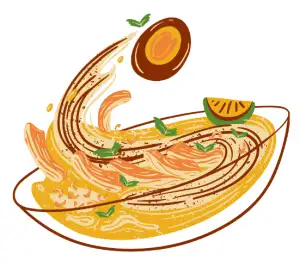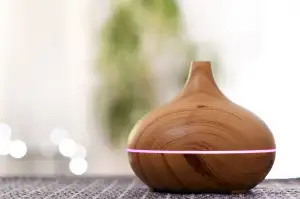Rust Be Gone: Mastering the Art of Cleaning Rusty Cast Iron at Home

- Gather the Necessary Supplies for Cleaning Rusty Cast Iron
- Preparing the Cast Iron for Cleaning
- Removing Rust from Cast Iron Using Natural Methods
- Removing Rust from Cast Iron Using Commercial Cleaners
- Scrubbing and Cleaning the Cast Iron
- Drying and Seasoning the Cast Iron
- Tips for Preventing Rust on Cast Iron
Cast iron cookware has been a staple in kitchens for centuries, known for its durability and ability to retain heat. However, if not properly cared for, cast iron can develop rust over time. Rust not only affects the appearance of the cookware but also compromises its performance. Cleaning rusty cast iron is crucial to maintain its longevity and ensure safe cooking. In this article, we will explore effective methods and tips to restore your rusty cast iron to its former glory, allowing you to enjoy delicious meals without any worries.
Gather the Necessary Supplies for Cleaning Rusty Cast Iron
To successfully clean rusty cast iron, it is important to gather the necessary supplies beforehand. Here are the items you will need:
1. Scrub brush or sponge: Look for a brush with stiff bristles that can effectively remove rust and grime from the cast iron surface.
2. Coarse salt or baking soda: These natural abrasives will help in loosening the rust and making it easier to remove.
3. White vinegar or lemon juice: Both of these acidic solutions work wonders in breaking down rust and restoring the shine of your cast iron.
4. Aluminum foil: This can be used as a gentle scrubbing tool to remove stubborn rust spots without damaging the cast iron.
5. Paper towels or clean cloth: These will come in handy for wiping away excess moisture during the cleaning process.
6. Cooking oil or lard: After cleaning, you'll need oil to season and protect your cast iron from future rusting.
By having these supplies ready, you'll be well-prepared to tackle any rusty cast iron and restore it to its former glory.
Preparing the Cast Iron for Cleaning
Before you begin the process of cleaning rusty cast iron, it is essential to prepare the cookware properly. Start by removing any food residue or debris from the surface using a stiff brush or scraper. Be gentle to avoid scratching the cast iron.
Next, fill a sink or basin with warm water and add a small amount of mild dish soap. Place the cast iron in the soapy water and let it soak for about 10-15 minutes. This will help loosen any stubborn dirt or grease.
After soaking, use a sponge or soft cloth to gently scrub the surface of the cast iron, paying close attention to areas with rust spots. Avoid using abrasive materials that can damage the seasoning.
Once you have thoroughly cleaned the cast iron, rinse it under running water to remove any soap residue. Make sure to dry it completely using a clean towel or paper towels.
Now that your cast iron is prepared for cleaning, you can move on to removing rust using natural methods or commercial cleaners.
Removing Rust from Cast Iron Using Natural Methods
If you prefer to use natural methods to remove rust from your cast iron, there are a few options available. One effective method is to create a paste using equal parts baking soda and water. Apply the paste to the rusty areas and let it sit for a few hours or overnight. Then, scrub the rust away using a stiff brush or steel wool.
Another natural option is to use vinegar. Fill a container large enough to submerge your cast iron in with white vinegar. Place the rusty cast iron in the vinegar and let it soak for several hours or overnight. The acidity of the vinegar will help dissolve the rust. After soaking, scrub away any remaining rust with a brush or steel wool.
For stubborn rust stains, you can also try using lemon juice and salt. Sprinkle salt over the rusted areas and then squeeze lemon juice over it. Let it sit for a few hours before scrubbing away the rust with a brush or steel wool.
Remember to always rinse your cast iron thoroughly after using these natural methods to remove rust. Dry it completely before moving on to the next step of cleaning and seasoning.
Using these natural methods will not only effectively remove rust from your cast iron but also avoid exposing it to harsh chemicals found in commercial cleaners.
Removing Rust from Cast Iron Using Commercial Cleaners
If natural methods don't do the trick, you can turn to commercial cleaners specifically designed for removing rust from cast iron. These cleaners often contain powerful chemicals that can effectively dissolve rust and restore your cookware to its former glory.
When using a commercial cleaner, it's important to carefully read and follow the instructions provided by the manufacturer. Typically, you will need to apply the cleaner directly onto the rusty areas of your cast iron and let it sit for a specified amount of time. This allows the chemicals to penetrate and break down the rust.
After the designated time has passed, you can use a scrub brush or sponge to gently scrub away any remaining rust particles. Be sure to use a non-abrasive brush or sponge to avoid damaging the surface of your cast iron.
Once you have successfully removed all traces of rust, thoroughly rinse your cast iron under warm water to remove any residue from the cleaner. It's crucial to completely remove all traces of the cleaner before moving on to the next step.
Remember that commercial cleaners may contain harsh chemicals, so it's essential to wear gloves and work in a well-ventilated area while using them. Additionally, always keep these cleaners out of reach of children and pets.
Using commercial cleaners can be an effective way to tackle stubborn rust on your cast iron cookware. However, it's important not to rely solely on these products and neglect regular maintenance and seasoning practices for your cast iron.
By combining natural methods with commercial cleaners when necessary, you can ensure that your cast iron stays free from rust and continues to provide excellent cooking results for years to come.
Scrubbing and Cleaning the Cast Iron
Once you have successfully removed the rust from your cast iron, it's time to give it a thorough scrubbing and cleaning. Start by using a stiff brush or sponge to scrub away any remaining rust particles and dirt. Be sure to pay attention to all the nooks and crannies of the cast iron, including the handle and sides.
For tougher stains or stubborn residue, you can create a paste using equal parts of baking soda and water. Apply the paste to the affected areas and use a gentle scrubbing motion to work it into the surface. This will help lift off any remaining rust or grime.
After scrubbing, rinse the cast iron thoroughly with warm water to remove any traces of cleaning solution or residue. Avoid using soap as it can strip away the seasoning on your cast iron.
Once clean, dry the cast iron completely using a towel or by placing it over low heat on your stovetop for a few minutes. Make sure there is no moisture left on the surface as this can lead to future rust formation.
Remember that cast iron should never be soaked in water or left wet for long periods as this can cause rusting. Always make sure to dry it thoroughly after each use and before storing it.
By following these steps, you'll be able to maintain a clean and rust-free cast iron that will last for years to come.
Drying and Seasoning the Cast Iron
Once you have thoroughly cleaned your rusty cast iron, it is crucial to dry it completely before moving on to the seasoning process. Moisture can lead to rust formation, so make sure there is no trace of water left on the surface.
To dry the cast iron, place it in a preheated oven at a low temperature for about 10-15 minutes. This will help evaporate any remaining moisture. Alternatively, you can also air-dry it by placing it in a warm and dry area for a few hours.
After drying, it's time to season your cast iron. Seasoning creates a protective layer on the surface that prevents rust and enhances its non-stick properties. Start by applying a thin layer of vegetable oil or flaxseed oil all over the cast iron, including the handle and exterior.
Place the oiled cast iron upside down in an oven preheated to around 375°F (190°C). Let it bake for about an hour. This process allows the oil to polymerize, forming a hard and durable coating.
Once done, turn off the oven and let the cast iron cool inside before removing it. You may notice some excess oil or sticky residue; simply wipe it off with a paper towel.
Repeat this seasoning process several times to build up a strong seasoning layer. The more you season your cast iron, the better its performance will be over time.
Remember to store your seasoned cast iron in a dry place to prevent moisture from causing rust again. With proper care and regular seasoning, your cast iron will stay rust-free and serve you well for years to come.
Tips for Preventing Rust on Cast Iron
1. Dry thoroughly: After cleaning your cast iron, make sure to dry it completely to prevent any moisture from lingering and causing rust.
2. Season regularly: Regularly seasoning your cast iron helps create a protective layer that prevents rust from forming. Apply a thin coat of oil or fat after each use and bake it in the oven at a low temperature.
3. Avoid soaking: Do not soak your cast iron in water for extended periods as this can lead to rust formation. Instead, quickly rinse with warm water and scrub gently.
4. Store properly: Store your cast iron in a dry place with good ventilation. Avoid stacking multiple pieces together as this can trap moisture and promote rust.
5. Use gentle cleaning methods: When cleaning your cast iron, avoid using harsh abrasives or metal utensils that can damage the seasoning and expose the metal to rust.
By following these simple tips, you can keep your cast iron cookware rust-free and enjoy its benefits for years to come.
In conclusion, by following the steps outlined in this article, you can ensure that your cast iron remains rust-free for years to come. Regular cleaning and maintenance are key to preserving the longevity of your cookware. Remember to always dry your cast iron thoroughly after each use and apply a layer of oil or seasoning to prevent rust from forming. With proper care, your cast iron will continue to be a reliable and versatile tool in your kitchen arsenal. So go ahead and enjoy cooking with confidence, knowing that your cast iron is free from rust and ready to deliver delicious meals every time.
Published: 21. 12. 2023
Category: Food



